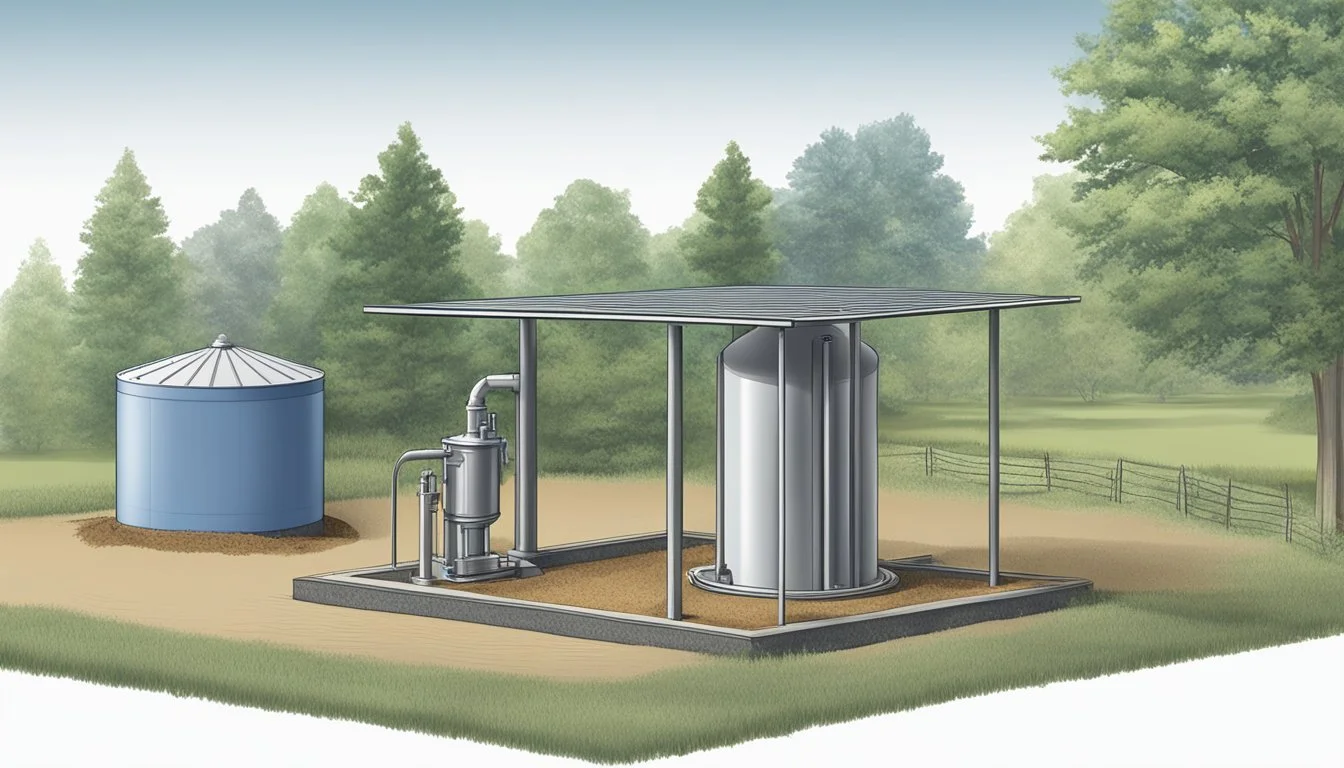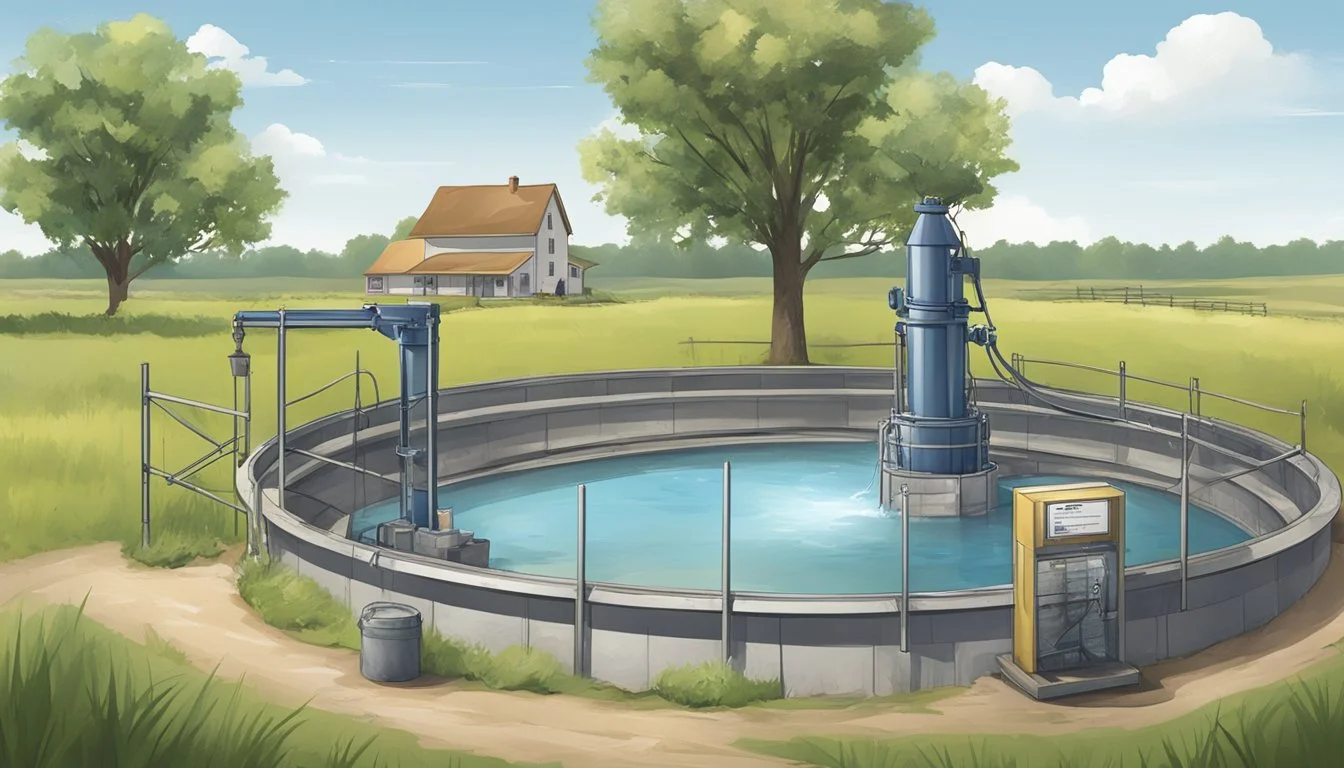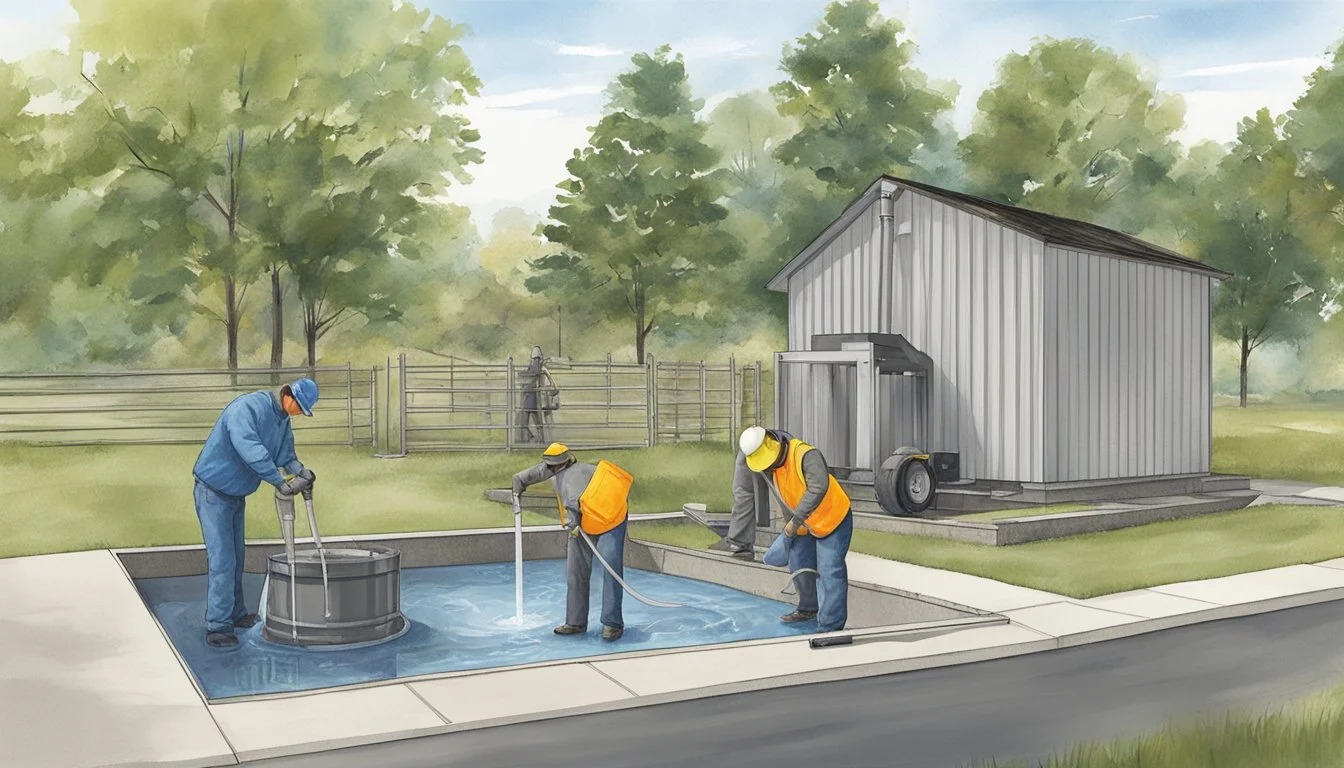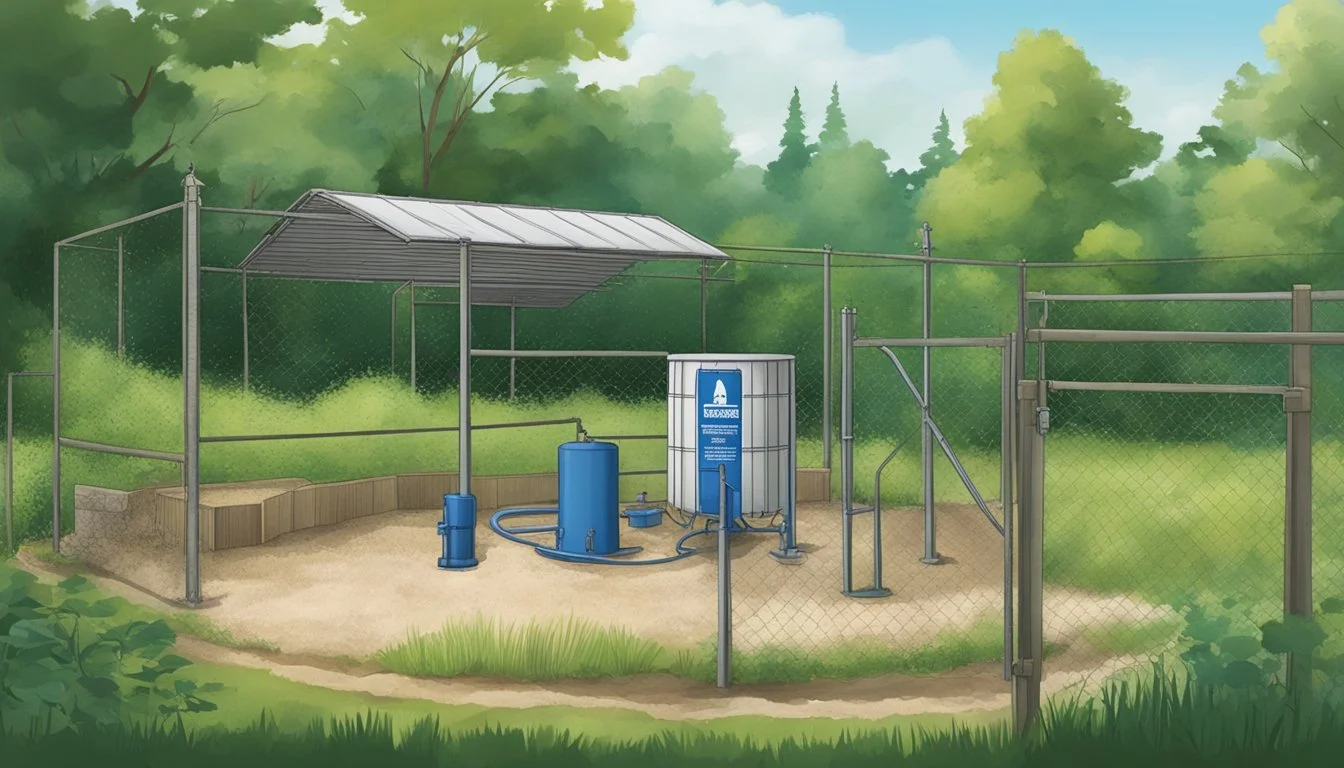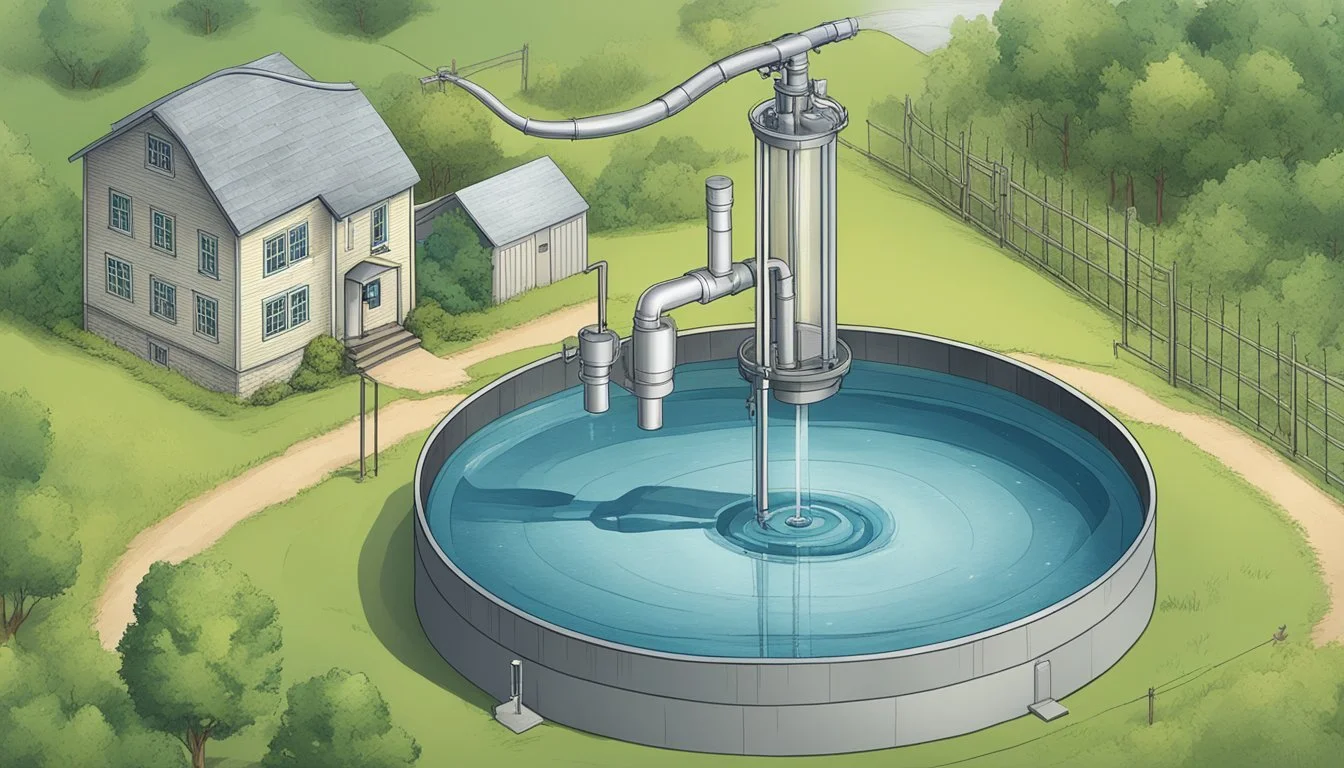Michigan Water Well Regulations
Understanding Compliance for Property Owners
In the state of Michigan, the safety and quality of drinking water for citizens relying on water wells are governed by stringent regulations. These regulations are outlined in the Michigan Water Well Construction and Pump Installation Code, the cornerstone of which is Part 127 of Act 368, PA 1978 and its Administrative Rules. The primary aim is to protect public health, and this involves meticulous standards for well construction, maintenance, and the plugging of abandoned wells.
Michigan's geographical and environmental context presents unique challenges and necessitates specific considerations with respect to groundwater resources. Professionals involved in well construction methods, pump and pressure tank installation, and water sampling and testing must adhere to these well-established rules. Compliance ensures the sustainability of groundwater resources and protects them against contamination.
With over one million private residential wells serving a significant portion of its population, Michigan prioritizes the wellbeing of its residents through the Care for MiWell program, which encourages proper maintenance and care of private water wells. The guidance provided by the state ensures that individual well owners are aware of their responsibilities and the necessary actions they must take to secure safe drinking water, thereby upholding the collective effort to safeguard Michigan's water resources.
Michigan's Water Well Regulatory Framework
Michigan's regulatory landscape for water well construction and maintenance is governed by comprehensive state regulations, ensuring the health and wellness of its citizens. This framework is designed to enforce high standards for water quality and environmental health.
Department of Environment Oversight
The Michigan Department of Environment, Great Lakes, and Energy (EGLE) is tasked with the oversight of water well standards. They implement and enforce regulations that protect the public by ensuring that water wells are properly constructed and maintained. EGLE's dedicated Water Well Construction Unit manages the implementation of these regulations.
Michigan Water Well Construction and Pump Installation Code
The Michigan Water Well Construction and Pump Installation Code is a set of standards laid out in Part 127, Act 368, PA 1978, including administrative rules that provide a blueprint for water well construction. These rules mandate how wells are to be properly designed, constructed, and decommissioned, safeguarding Michigan's groundwater resources. The code's most recent revisions can be explored through the State of Michigan Water Well Manual.
Part 127 - Water Well and Environmental Health
Part 127 is specifically concerned with the intersection of water well integrity and environmental health. It outlines the responsibilities for individuals and companies involved in the construction, maintenance, and plugging of water wells. This part of the code ensures that professionals performing these tasks meet the necessary qualifications and adhere to established protocols for protecting both human health and the environment.
Water Well Construction Standards
Michigan's water well construction standards are integral for ensuring safe and reliable drinking water sources. Through adherence to these detailed regulations, well construction and water well integrity are maintained, protecting public health and the environment.
Construction Material Regulations
The selection of materials for well construction is crucial. According to the State of Michigan Water Well Manual, materials must be durable and capable of maintaining the integrity of the water well against physical and chemical degradation. This ensures that the well does not contaminate the water supply and can withstand various environmental conditions over time.
For instance, screening materials used in well construction are required to be:
Resistant to corrosion
Non-toxic
Free from contaminants
Casing materials should meet the standards laid out in the Michigan Water Well Construction and Pump Installation Code, such as:
Being watertight
Having sufficient structural strength
Design and Installation Requirements
Design and installation of water wells in Michigan must comply with specific requirements to protect the groundwater. The Michigan Water Well Construction and Pump Installation Code outlines the necessary protocols for the proper placement and construction of wells to minimize potential contamination risks.
Key design and installation standards include:
Isolation distances from potential sources of contamination.
Appropriate well casing elevation to prevent surface water ingress.
Sanitary seals and caps to eliminate foreign substances entering the well.
Well constructors need to ensure:
Compliance with local health department regulations.
Adherence to the Safe Drinking Water Act requirements.
By observing these meticulous design and installation standards, Michigan remains at the forefront of safeguarding its water supplies through well-regulated water well construction practices.
Groundwater Protection and Public Health
Groundwater protection is integral to safeguarding public health. Robust regulations ensure that sources of drinking water remain uncontaminated by harmful substances, thus preventing health risks.
Preventing Contamination
Regulatory Framework: Michigan strongly emphasizes the construction of water wells to protect groundwater resources and public health. The technical aspects of well construction, operation, and decommissioning are regulated to prevent contamination of aquifers, which are a vital source of clean drinking water.
List of Preventive Measures:
Isolation Distances: Maintaining proper isolation distances between wells and potential sources of contamination.
Wellhead Protection: Implementing wellhead protection programs to identify and manage threats within the area contributing groundwater to public water systems.
Periodic Testing: Regular water quality testing for contaminants, including PFAS, which are compounds known to cause adverse health effects.
Public Health Considerations
Awareness and Enforcement:
Local health departments play a critical role, as outlined in the State of Michigan Water Well Manual, in enforcing the code on water wells and educating the public on proper well maintenance and potential health risks from groundwater contamination.
Residential Wells: Over one million private residential wells exist in Michigan, serving approximately 2.6 million residents. Information on the care for residential well water is critical to ensure that individuals are protected from contaminants that may enter the drinking water supply.
Regulatory Compliance:
Equipment Approval: Adequate measures, such as scrutiny of well equipment to meet specified standards mentioned in Drinking Water and Environmental Health Policy, are enforced to prevent groundwater contamination.
Education on Contaminants: Public health officials endorse the education of citizens on potential health risks of contaminants like PFAS to enable them to take informed decisions regarding their water supply.
Well Inspection and Maintenance
In Michigan, the longevity and safety of water wells hinge on systematic inspections and diligent maintenance. Adherence to state regulations ensures that water wells function efficiently and provide safe drinking water to residents.
Regular Inspection Procedures
Frequency: It is recommended that a registered well driller inspects the well system every 10 years or as needed.
Inspection Focus: The inspection should cover the condition of the well, including the pump, storage tank, piping, and valves. Registered professionals are equipped to assess the operational integrity of the well and identify any potential issues.
Checklist for Professional Inspection:
Wellhead inspection for signs of damage or tampering.
Verification of cap integrity to prevent contamination.
Assessment of pump operation and pressure tank performance.
Ensuring proper sealing and casing of the well structure.
In the event of well system component failures, professional inspections are crucial for maintaining water quality and system reliability.
Maintenance Guidelines for Well Owners
Regular Maintenance: Well owners are responsible for the upkeep of their water wells. Ensuring the immediate area around the well is clean and free from potential contaminants is paramount.
Maintenance Steps Include:
Keeping hazardous chemicals, such as paint, fertilizer, and pesticides, away from the well area.
Ensuring the well's sanitary seal is intact to prevent contaminants from entering the water supply.
Protecting the physical well casing from damage caused by equipment or vehicles.
For outdated or compromised wells, contact a registered well driller who can install a new well and properly abandon the old one by plugging or sealing it. For further guidance, the State of Michigan provides resources on drinking water well maintenance tailored for well owners.
Engaging in regular maintenance checks and prompt action when anomalies are detected can significantly extend the life of the well and safeguard water quality.
Water Resource Management
In Michigan, stringent regulations govern water well construction and wastewater management to ensure the safeguarding of the state's water resources. These measures are critical for protecting both public health and property interests.
Water Withdrawal and Usage
Michigan's approach to water withdrawal is governed by a foundational legal framework designed to protect the sustainability of water resources. Specific Water Well Construction regulations spell out standards for well design, location, construction, and maintenance. Entities withdrawing water must heed the Michigan Water Well Construction and Pump Installation Code, including adherence to groundwater protection safeguards.
Property owners are obligated to ensure their water usage complies with Part 127 of Act 368 of 1978, particularly where it pertains to the impact on surrounding water resources and neighboring properties. This includes obtaining the necessary permits for large-quantity withdrawals and maintaining accurate records of water use.
Wastewater Disposal
Disposal of wastewater in Michigan is regulated to prevent contamination of soil and water bodies. Detailed in the Michigan Guide to Environmental Regulations, these regulations encompass aspects ranging from septic system design to the treatment of industrial effluent.
Properties must have wastewater systems that conform to the state's administrative rules. Further, these systems are to be installed and serviced by licensed professionals to ensure compliance with environmental standards and to minimize the risk of pollution. The discharge of wastewater is closely monitored to mitigate adverse effects on the environment and public health.
Drilling Operations and Environmental Safety
In Michigan, specific regulations are enforced to safeguard the environment from potential hazards associated with water well drilling operations, as well as oil and gas extraction efforts. The measures aim to prevent contamination, ensuring both public health and ecological integrity.
Responsible Drilling Practices
Michigan mandates strict compliance with the Michigan Water Well Construction and Pump Installation Code for water well drilling. Contractors must follow protocols that mitigate risks to groundwater during the well construction process. The regulation under Part 127 of Act 368 affirms that every aspect of drilling, including the siting and sealing of wells, is conducted in a manner that minimizes the potential for environmental degradation.
Oil and Gas Extraction Impacts
During the extraction of oil and gas, Michigan addresses environmental safety through stringent rules. According to state guidelines, the construction of water wells used for drilling must adhere to the public health code, ensuring that the use of surface water for drilling respects both the ecological integrity of surface water bodies and the health of the public. This helps in preventing the contamination of water resources with harmful substances such as oil or brine, thereby protecting the surrounding ecosystem.
Compliance and Enforcement
Michigan's compliance and enforcement of water well regulations are designed to ensure that water wells are constructed and maintained in a manner that safeguards public health and the state's water resources. Enforcement measures are enacted to align with state regulations, and well owners bear specific responsibilities to adhere to these requirements.
State Regulations and Penalties
The Michigan Water Well Construction and Pump Installation Code sets forth the standards for water well construction, as well as the penalties for non-compliance. Enforcement actions can include fines, orders to restrict water well use, or mandates to correct the non-conformities. These penalties are designed to deter violations and encourage prompt compliance with the safety standards.
Well Owner Responsibilities
Well owners are required to ensure their wells comply with the Michigan Water Well Construction and Pump Installation Code, which includes proper construction, regular maintenance, and testing for contaminants. Owners must also maintain an accurate well record and provide water samples when requested. Failure to meet these obligations can lead to enforcement actions taken by the state, emphasizing the essential role of the well owner in safeguarding water quality.
Public Water Supply Integration
In Michigan, the integration of public water supplies with water well construction aims to maintain safe drinking water standards. Strict regulatory frameworks support this integration to ensure the health of Michigan's citizens.
Interactions with Municipal Systems
Public water supply systems are vital for delivering safe drinking water to communities. They typically rely on a combination of surface water and groundwater sources. The State of Michigan Water Well Manual outlines the guidelines for water wells to be integrated into these larger municipal systems. This ensures that the individual water wells function seamlessly within the more extensive community water infrastructure, thereby supporting public health and environmental sustainability.
Regulations for Public Supply Wells
For water wells that form part of the public water supply, Michigan adheres to specific construction and maintenance protocols. The Michigan Water Well Construction and Pump Installation Code mandates these standards to protect the water supply from contamination and ensure reliable operation. For example, all public supply wells must be constructed according to the regulations that are in conjunction with Part 127 of the Safe Drinking Water Act, as well as the administrative rules stemming from it. Compliance with these regulations is crucial for the integrity of public drinking water sources in the state.
Frequently Asked Questions
In this section, readers will find pertinent information regarding the specifics of Michigan's water well regulations and requirements, which are designed to ensure the safety and reliability of water wells within the state.
What are the minimum construction standards for water wells in Michigan?
Michigan mandates adherence to the Michigan Water Well Construction and Pump Installation Code, which outlines various protocols like proper well casing, material standards, and grouting to safeguard drinking water sources.
How do you obtain records of existing wells in Michigan?
Information on existing water wells in Michigan can be accessed through the Water Well Manual which provides guidance on where to find records and the types of well construction documents maintained by the state.
What is the required isolation distance for water wells from potential sources of contamination in Michigan?
Michigan state regulations stipulate specific isolation distances for water wells from potential contamination sources, such as septic systems and chemical storage areas, to prevent any possible water supply contamination.
What are the specifications for pump installations in water wells according to Michigan regulations?
Specifications for pump installations are detailed in the Michigan Water Well Construction Code, ensuring that pumps are properly sized, installed, and meet the necessary standards for efficiency and safety.
Is it legal for homeowners to drill their own water wells in Michigan?
In Michigan, homeowners may legally drill their own water wells, but it is required they comply with all well construction and pump installation codes established by the state to assure their well's safety and compliance.
What is the average service life of a water well in Michigan?
The average service life of a water well in Michigan varies, although a well-maintained system can last for 20 to 30 years. Regular inspection, maintenance, and following state guidelines are crucial for ensuring the longevity of a water well.

